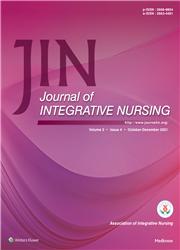A study on the correlation between function motivation and professional identity among nursing volunteers
Q4 Nursing
引用次数: 0
Abstract
Objective: The objective of this study is to understand the status quo of function motivation and professional identity among nursing volunteers and explore the correlation between the two. Materials and Methods: A total of 3375 nursing volunteers from Nightingale Volunteer Service Group in Shanxi Province were investigated by using Occupational Identity Scale and Volunteer Functional Motivation Scale. Results: A total of 3375 questionnaires were issued and 3330 were recovered, among which 3324 were valid, with an effective recovery rate of 99.82% (3324/3330). The overall score of professional identity of nurses was 110.31 ± 18.71, and the score of each dimension was 32.17 ± 6.62 for professional cognitive evaluation dimension, 22.77 ± 3.74 for professional social support, 21.31 ± 4.09 for professional social skills, 22.78 ± 3.79 for professional frustration coping, and 11.32 ± 2.03 for professional self-reflection. The total score of function motivation was 157.12 ± 29.92. The above five dimensions of nurse's professional identity scale were positively correlated with the total score of function motivation of nursing volunteers (r = 0.044, 0.035, 0.034, 0.035, and 0.042, respectively, all P < 0.05). Conclusion: The functional motivation and professional identity of nursing volunteers in Shanxi Province are in the middle level in China. Therefore, it is necessary for the hospital to stimulate nursing staff's enthusiasm about participation by carrying out multi-channel and multi-form volunteer service projects, enhance their professional identity, and make them better give back nursing professional skills to the society.护理志愿者职能动机与职业认同的相关研究
目的:了解护理志愿者功能动机和职业认同的现状,探讨两者之间的相关性。材料与方法:采用职业认同量表和志愿者功能动机量表对山西省南丁格尔志愿服务集团3375名护理志愿者进行调查。结果:共发放问卷3375份,回收问卷3330份,其中有效问卷3324份,有效回收率为99.82%(3324/3330)。护士职业认同总分为110.31±18.71分,其中职业认知评价维度各维度得分为32.17±6.62分,职业社会支持维度得分为22.77±3.74分,职业社会技能维度得分为21.31±4.09分,职业挫折应对维度得分为22.78±3.79分,职业自我反思维度得分为11.32±2.03分。功能动机总分为157.12±29.92分。护士职业认同量表上述5个维度与护理志愿者功能动机总分呈正相关(r分别为0.044、0.035、0.034、0.035、0.042,P均< 0.05)。结论:山西省护理志愿者的功能动机和职业认同在全国处于中等水平。因此,医院有必要通过开展多渠道、多形式的志愿服务项目,激发护理人员的参与热情,增强其职业认同感,使其更好地将护理专业技能回馈社会。
本文章由计算机程序翻译,如有差异,请以英文原文为准。
求助全文
约1分钟内获得全文
求助全文
来源期刊

Journal of Integrative Nursing
Nursing-General Nursing
CiteScore
0.40
自引率
0.00%
发文量
3
审稿时长
17 weeks
 求助内容:
求助内容: 应助结果提醒方式:
应助结果提醒方式:


